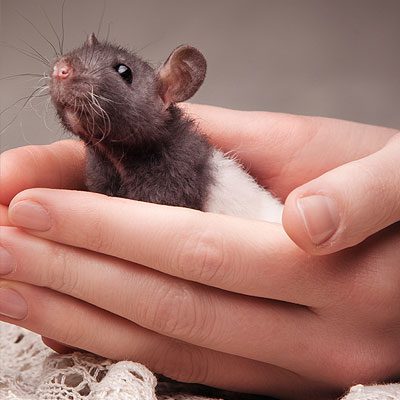We’re used to our canine and feline friends being the ones to come down with parasitic infestations, but did you know that pocket pets like gerbils, hamsters, guinea pigs, mice, rats, and rabbits can suffer from them as well? Learn more below from your Chesapeake, VA veterinarian.
Fleas
Fleas can infest many mammals, including pocket pets. Ferrets and rabbits are the most commonly affected. Thanks to most pocket pets’ small size, life-threatening anemia can occur very quickly when a flea infestation occurs. For this reason, it’s essential to seek veterinary treatment immediately. Ask your veterinarian about the telltale signs of flea infestations in your pocket pet so you know when to place a call to the office.
Never use a flea treatment designed for a dog or cat on your pocket pet, as these aren’t formulated for your rodent pet’s needs.
Ticks
Tick bites are most likely to occur in pocket pets that spend time outdoors, like rabbits who are let out to graze for short periods of time. Ticks aren’t picky about what they latch on to, and pocket pets are no exception to the rule. Since ticks can carry dangerous diseases, it’s important to consistently check your pocket pet’s skin for ticks if you let them outdoors. If you find one, call your vet to find out how to proceed.
Lice and Mites
Pocket pets may also be at risk for infestation by lice and mites. Ear mites are the most commonly diagnosed infestation, and will cause itchy ears with a noticeable black crust. Other types of mites, as well as lice, may cause skin irritation, inflammation, scabs, and hair loss. Some of these pests may even be transferrable to humans, so talk to your veterinary professional about getting your pet treatment right away. In almost all cases, mite and lice infestations are easily treatable with prescription medications and a thorough cleaning.
Worms
Worm infestations aren’t as common amongst pocket pets as mites, lice, or fleas, but they are possible. Ferrets, in particular, are at risk for contracting heartworms. Other worms, such as roundworms and flatworms, may also pose a risk. Ask your veterinarian for more information on the symptoms of such infestations as well as how to have them treated.
Do you have questions about your pocket pet’s healthcare? Does your rodent friend need a checkup? Set up an appointment at your Chesapeake, VA vet’s office today.









